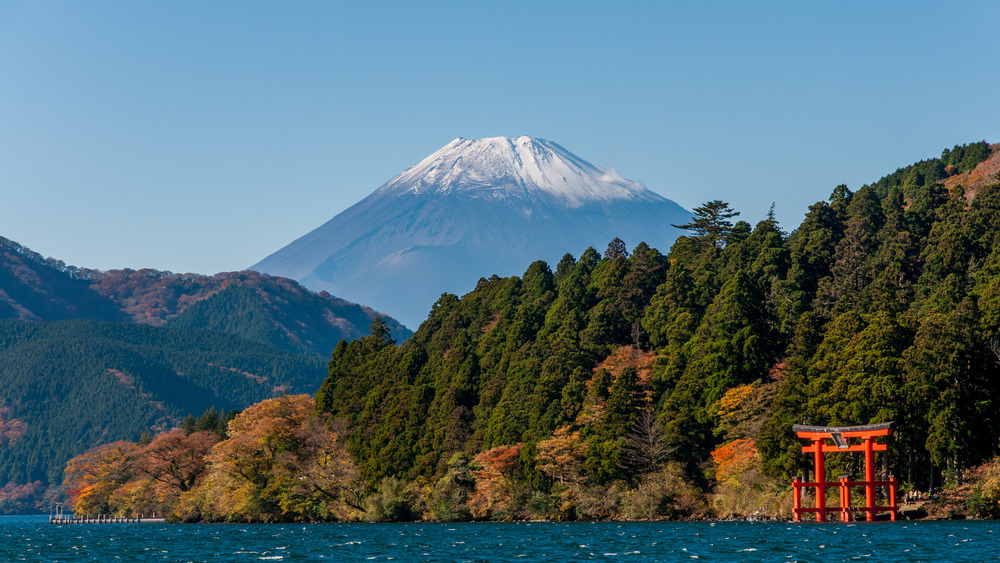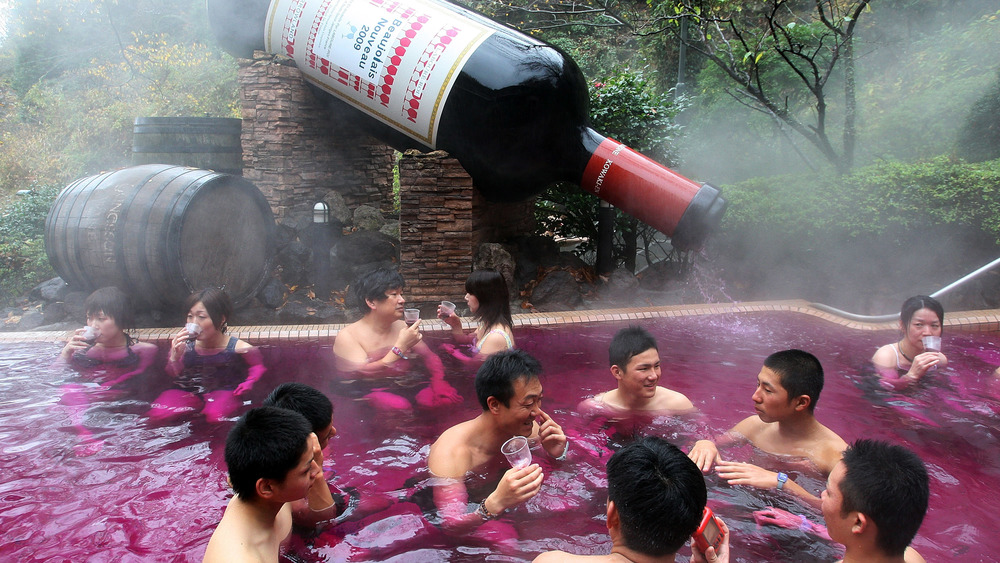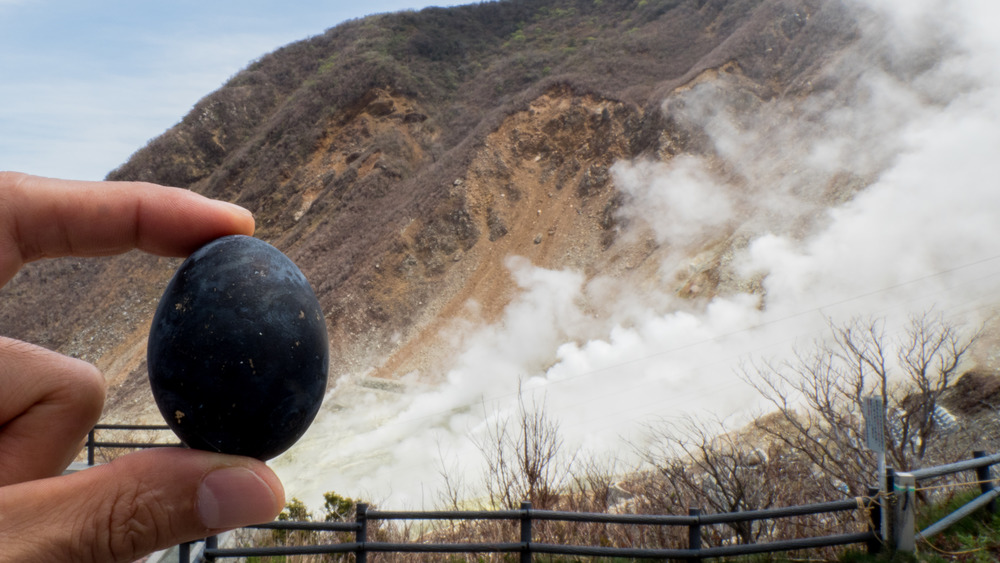The Truth About Hakone, Japan's Hot Springs
Hakone is a region of Japan widely regarded for its onsen (hot springs). Located about 90 minutes southwest of Tokyo, and about halfway between the city and Mt. Fuji, Hakone is home to a bustling domestic tourism industry. It's full of ryokan (Japanese-style hotels) that have private onsen on their grounds, sometimes even in-suite, and for those who prefer a more time-honored experience that dates back literally thousands of years, per The Japan Times, travelers can go to a public onsen and bare it all with some strangers. Hakone is also an ideal stop for its plethora of museums, as outlined on Trip Advisor, including the themed-room Little Prince museum for fans of Antoine de Saint-Exupéry's internationally renowned story.
But really, Hakone is all about its onsen. Japan's natural, sulfuric hot springs are connected to volcanic systems that spread throughout the island, and are known and used for their rejuvenative power. Even if you don't buy into some of onsen's more folklore-ish elements (anti-aging properties, earth energy, and so on), outlined on All About Japan, it's at least true that soaking in some hot water certainly feels cozy and restful.
One of Hakone's onsen stands out from the rest, though. Take one part natural hot springs, add some corporate-created mascots, schticky marketing, and a whole lot of overhead, and you too can now answer the age-old question: "What if I publicly bathe in hot wine that's just been hurled at my face by a dude carrying a bucket?"
Bathe in pork broth, coffee, wine, and more
As Lonely Planet tells us, Hakone Kowakien Yunessun, or simply "Yunessun," is a one-of-a-kind "hot springs amusement park." Couched in the mountainous greenery of Hakone, Yunessun is essentially a resort that houses a whole bunch of different kinds of onsen. There's traditional, Japanese-garden encircled onsen overlooking nearby gorges and hills, infinity pools gazing out over the surroundings, and far more outré offerings like pork-broth onsen, sake onsen, coffee onsen, green tea onsen, and of course, red wine onsen. And in case you're wondering: yes, we mean literal pork broth, sake, coffee, green tea, and wine.
In case it isn't clear: you actually sit in these liquids, although they're highly diluted. There's vaguely scientific rationale behind the skin-related benefits of each offering, such as tanin in the wine, collagen in the pork broth, and antioxidants in the green tea. Drinking is also permitted, but not recommended — besides, for the coffee and wine baths, employees come around with samples and give you some before hurling it at you. But sorry: the pork-broth onsen stopped pouring actual noodles into the bath (true story).
Kids are 100 percent allowed. But, those kids can also head to the adjacent water park and slip down some slides into a regular old, chlorinated pool. Also, there's a little pool full of tiny fish that chew dead skin off your feet. But fear not. This is actually pretty common in certain Asian countries such as Cambodia, Thailand, and Singapore.
A cheese-headed cat mascot and onsen just for eggs
Before you say "What in the world?" to any of this, bear in mind that Yunessun was built on the back of not only gimmicky onsen, but some serious branding and financing. First off, the resort has its own corporate mascot, Spakoneko, who looks like a block-headed cat with a slice of cheese on his head. And as the Yunessen homepage shows, there are quite a lot of restaurant options, souvenir shops, bathing suit rentals, massage parlors, and lodging choices (including ryokan like the yowzas-inducing Hakone Kowakien Mikawaya, which has the aforementioned in-suite onsen). If you want a good in-person tour of the facilities, Safiya Nygaard does a great job on her YouTube channel.
Lest you think that only humans can enjoy hot springs in Hakone, the area has a famous onsen just for boiling eggs. Located at Owakudani next to Izu National Park, the onsen's sulfuric waters turn eggs black, as Atlas Obscura outlines. Legend says that eating one egg adds seven years to your life, but sorry, no cheating and eating like 12 eggs to live past the year 2100 or something.
While it may be impossible to hop on a flight to Japan in the middle of the COVID-19 pandemic, Hakone and the marquee strangeness of Yunessun will doubtlessly be around for years to come. After all, what else would you expect from the country that gave us samurai, anime, and giant Gundam statues?


